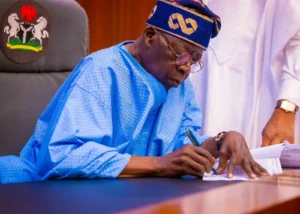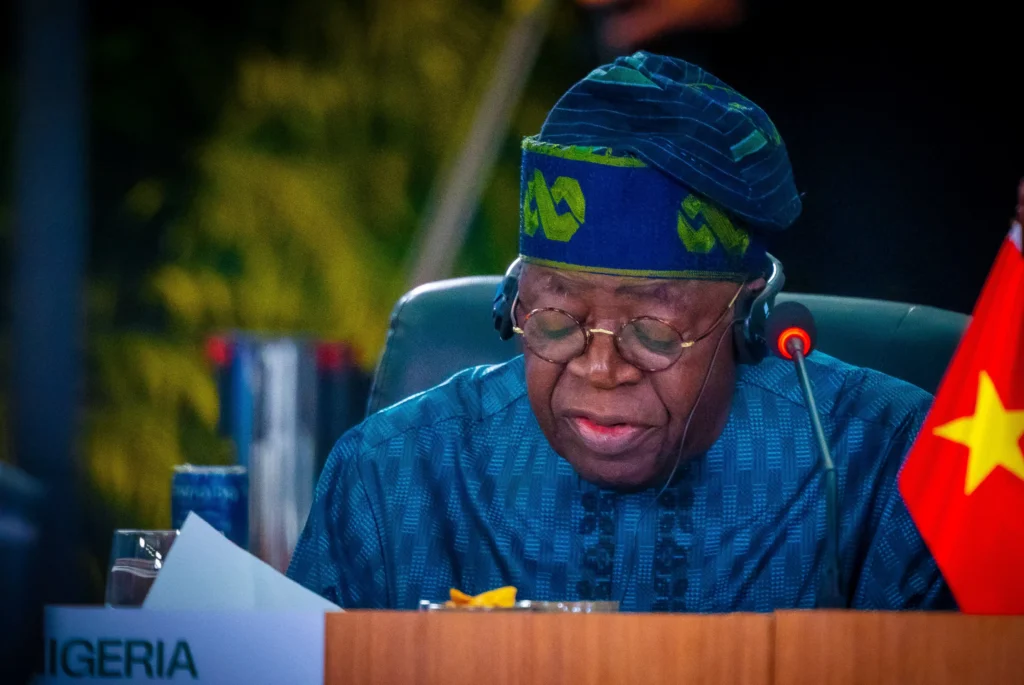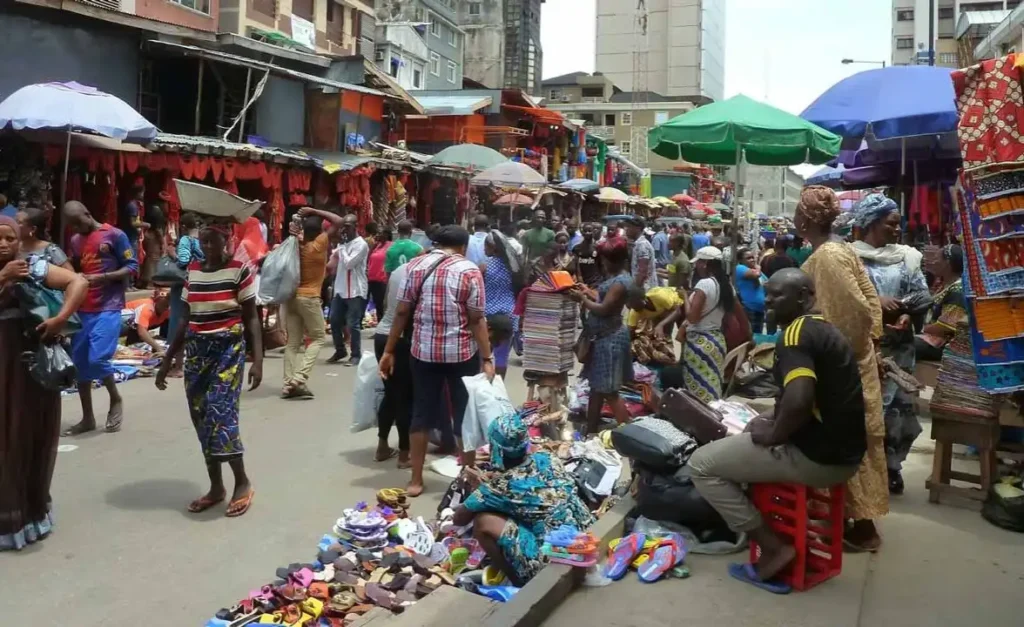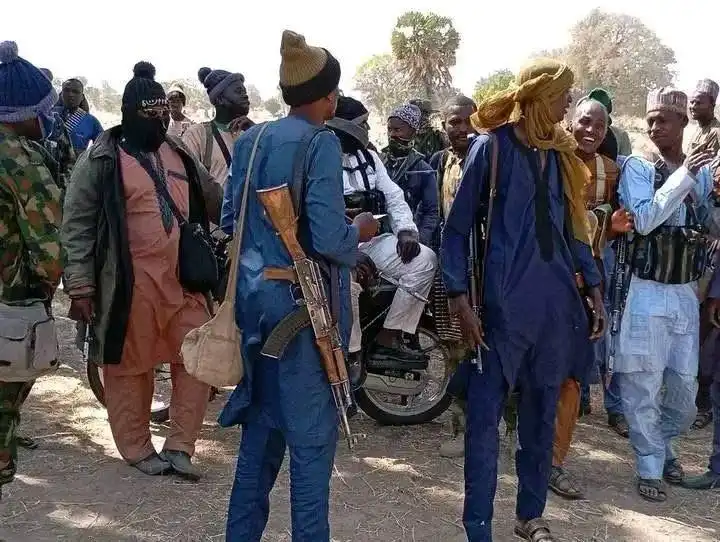Bola Ahmed Tinubu, one of Nigeria’s most influential political figures and the former governor of Lagos State, formally declared his intention to run for the office of President in the 2023 general elections. This long-anticipated announcement was made following a high-level consultation with President Muhammadu Buhari at the State House in Abuja.
Tinubu’s declaration immediately set off waves of political activity across the country, effectively launching the campaign season for Nigeria’s ruling party, the All Progressives Congress (APC). As a central figure in Nigeria’s Fourth Republic and the founding leader of the APC, Tinubu’s announcement carried significant weight and positioned him as a leading contender for the presidency.
“It’s My Lifelong Ambition,” Tinubu Tells Nigerians
Speaking to State House correspondents shortly after his closed-door meeting with President Buhari, Tinubu revealed that his decision to contest Nigeria’s top office was deeply rooted in personal conviction and a long-standing commitment to public service. “I have informed the President of my intention. It’s a lifelong ambition and I have the confidence, vision, and capacity to build on the foundation laid by the President,” he said.
Tinubu emphasized that he was not seeking power for personal gain but to continue the developmental legacy of the Buhari administration and to address critical national challenges such as insecurity, unemployment, economic stagnation, and infrastructural deficits.
“I’ve served the people of Lagos and I’ve led reforms that transformed it into one of Africa’s most vibrant cities. I want to bring that same experience to the national stage,” he stated confidently.

A Powerful Political Resume
Bola Tinubu’s journey in Nigerian politics spans decades and includes several high-profile achievements. A two-term governor of Lagos State from 1999 to 2007, Tinubu is widely credited with implementing bold reforms in taxation, urban infrastructure, and governance, which helped modernize Lagos and increase its internally generated revenue.
After leaving office, Tinubu played a pivotal role in the merger of Nigeria’s major opposition parties in 2013 to form the All Progressives Congress, the platform that later brought Muhammadu Buhari to power in 2015. Known for his strategic acumen and political networking, Tinubu is often described as the “national leader” of the APC.
His political influence extends across the South-West region and into other geopolitical zones, where he has maintained alliances and built a loyal following over the years.
Buhari’s Non-committal Stance Sparks Speculation
During the press briefing, Tinubu was asked whether he had received President Buhari’s approval or endorsement. While the President did not make any public declaration of support at the time, Tinubu stated that Buhari had not dissuaded him from running. “He didn’t ask me not to run. It is a democratic process. He didn’t say yes and he didn’t say no,” Tinubu explained.
This neutral response from Buhari added an element of suspense to the political equation. Analysts speculated that Buhari’s silence could be a strategic move to allow a level playing field within the APC, or it could signal reservations about endorsing any particular candidate ahead of the party’s primaries.
Regardless, Tinubu’s statement sent a clear message to both supporters and critics: he was ready to run, with or without an explicit endorsement from the presidency.
Mixed Reactions from Political Stakeholders
Tinubu’s announcement was met with a variety of responses from political stakeholders, civil society groups, and the general public. Supporters hailed the move as a bold and timely declaration from a seasoned statesman with a proven track record.
“We need a visionary leader who understands governance and the economy. Tinubu fits that profile,” said an APC chieftain in Lagos. Others praised his political bravery, especially considering the uncertain terrain of Nigerian politics where presidential ambitions often meet strong resistance.
However, critics raised concerns about Tinubu’s age, health, and the controversy surrounding his wealth and political dealings. Some argued that Nigeria needs fresh faces and a new generation of leaders rather than recycled political veterans.
“While his legacy in Lagos is undeniable, we must ask whether Tinubu represents the future or the past of Nigerian leadership,” one political commentator observed.
Campaign Machinery Already in Motion
Even before his formal declaration, signs had emerged that Tinubu’s political machinery was gearing up for 2023. Various support groups had been launched across Nigeria, including the South-West Agenda for Asiwaju (SWAGA), Asiwaju Grassroots Foundation, and the Tinubu Support Group (TSG), among others. Billboards, social media campaigns, and rallies had already begun to promote his image and message of leadership renewal.
Following his announcement, these efforts intensified. Strategists and political observers noted that Tinubu had already secured substantial grassroots support and was ahead of many potential challengers in mobilizing delegates and party members.
Additionally, Tinubu’s network of political loyalists—many of whom occupy strategic positions at state and federal levels—signaled a formidable base of influence that could significantly shape the outcome of the APC primaries.
Challenges on the Road to 2023
Despite his political clout, Tinubu faces several challenges on his path to the presidency. Firstly, he will need to secure the APC ticket in a potentially crowded and competitive field. Other aspirants—including serving governors, ministers, and lawmakers—were also rumored to be nursing presidential ambitions.
Secondly, the question of zoning and regional representation may play a decisive role. While many APC leaders from the North have hinted at support for a Southern candidate, internal party dynamics and alliances may complicate the decision.
Moreover, public sentiment and Nigeria’s shifting political landscape—marked by calls for electoral reform, economic justice, and youth inclusion—will test Tinubu’s appeal beyond his traditional strongholds.
A Defining Chapter Begins
With his January 10 declaration, Bola Ahmed Tinubu officially stepped into the 2023 political arena, ending months of speculation about his intentions. As Nigeria looks toward another transition of power, his candidacy promises to reshape conversations about leadership, legacy, and the future of Africa’s largest democracy.
The months ahead will determine whether Tinubu can translate decades of political experience into national leadership—or whether the winds of change will favor a different path for Nigeria. Either way, his entry has elevated the stakes and energized the race for Nigeria’s next president.






